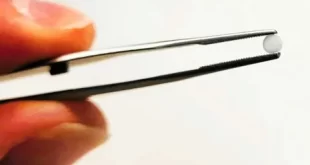Imagine being able to obtain a complete map of your gut microbiome by simply swallowing a pill. What once seemed like science fiction is now reality thanks to a groundbreaking innovation by researchers at Tufts University School of Engineering. This pill, the size of a vitamin, allows for an exhaustive inventory of microorganisms in all areas of the intestine, including those hard-to-reach spots. This marks a significant advancement over traditional stool analyses, which are limited to the flora of the colon.
A new tool to explore a complex ecosystem
The gut microbiome is an ecosystem of microorganisms that plays a crucial role in our physical and mental health. It influences everything from digestion to immune responses and has been linked to a wide variety of diseases, including metabolic disorders, chronic inflammatory bowel diseases, and even neurological disorders. This new technology provides a unique opportunity to better understand the microbiome’s impact on these conditions, allowing for more targeted interventions.
A smart and painless pill
Designed by the Tufts team, this pill is a remarkable engineering achievement. It features a soft and elastic casing, making it easy to swallow. As it travels through the intestines, pH-sensitive ports open to collect microbiome samples. Once the samples are absorbed, polyacrylate beads swell to seal the ports tightly, ensuring the samples remain intact until the pill is naturally evacuated.
“These ‘lab-on-a-pill’ devices will revolutionize our understanding of the gut microbiome’s spatial diversity and its response to medical conditions and treatments,” the researchers state in Advanced Intelligent Systems.
A step towards personalized medicine
In preclinical tests conducted on pigs and primates, the pill proved effective in gathering microbial samples that closely matched the explored environments. Clinical trials in humans are now being prepared, marking a key milestone toward broader use of this revolutionary tool.
This innovation paves the way for more precise diagnostics and personalized treatments. Mapping out the gut bacteria of each patient in detail could lead to better understanding of diseases related to the microbiome, improve diagnosis, and tailor treatments based on the individual’s microbial profile.
With this cutting-edge technology, personalized medicine takes a decisive turn, promising better care for chronic diseases and enhanced well-being for all.
 Etudes Non Stop Study Non Stop
Etudes Non Stop Study Non Stop



